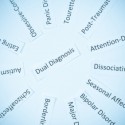NY reforms treatment of addiction, mental illness
The vast majority of New Yorkers struggling both with mental illness and substance abuse don’t get treatment for both conditions at the same time – a barrier that can result in relapse, discontinued treatment and, in some cases, suicide.
It’s a problem that’s gone on for years because of a flawed Medicaid coding system, and now a joint effort of the Office of Alcohol and Substance Abuse Services and the Office of Mental Health is trying to help the 90 percent of people who couldn’t get simultaneous treatment. Health officials say 1.4 million New Yorkers experience both mental illness and substance abuse.
“We’ll save lives,” said Michael Hogan, commissioner of the state Office of Mental Health. “We have roughly three suicides a day in New York of people, 90 percent of whom we know from psychological autopsies had a mental illness at the time. And it’s not just mental illness, it’s very often drinking or drug use.”
A $3.2 million grant from the National Development and Research Institutes Inc. will help train mental health workers and substance abuse workers to treat people who struggle with both problems. The entire structure of treatment will be reassessed, including screening, assessment, rehabilitation, discharge, and ongoing care.
People struggling with addiction and mental illness often don’t feel motivated to go to multiple state agencies seeking help for problems that may overlap, said Karen Carpenter-Palumbo, commissioner of Office of Alcohol and Substance Abuse Services.
“It is finally taking a person-centered approach to care, and saying emphatically,’If you need treatment for a dual diagnosis, you will get it,'” she said.
In the past, patients have been turned away when seeking help for mental health problems while in drug treatment, and the other way around. Medicaid simply didn’t pay for people to get both kinds of help at once.
“If you were going to treat people with both sets of problems, you would have to go to both sets of agencies and get two different licenses,” Hogan said. “You’d have to have two different waiting rooms, you would have to have two different bathrooms, for Pete’s sake.”
The services will be integrated at all of New York’s 1,223 licensed mental health and substance abuse outpatient treatment centers.
“The illusion (was) that you could deal with your depression, that you could deal with your bipolar disorder, and when that was fixed, then you can go deal with your drug problem,” Hogan said. “We just know that that does not work.”
source: http://www.examiner.com
